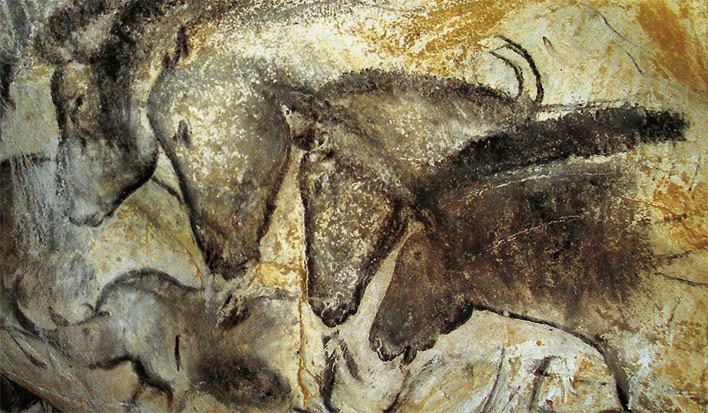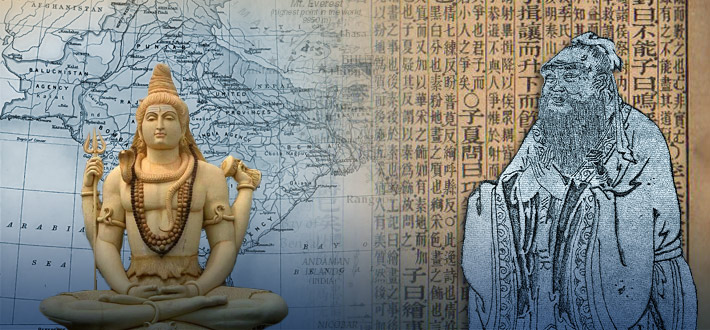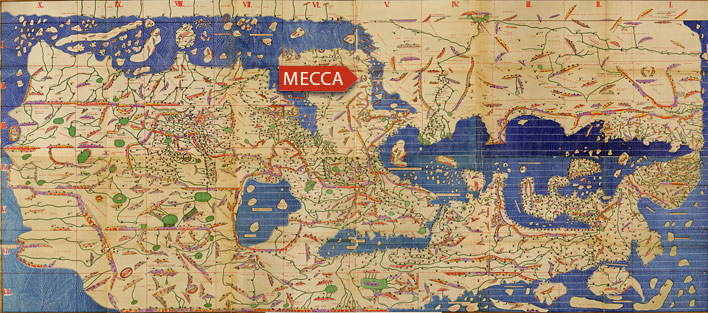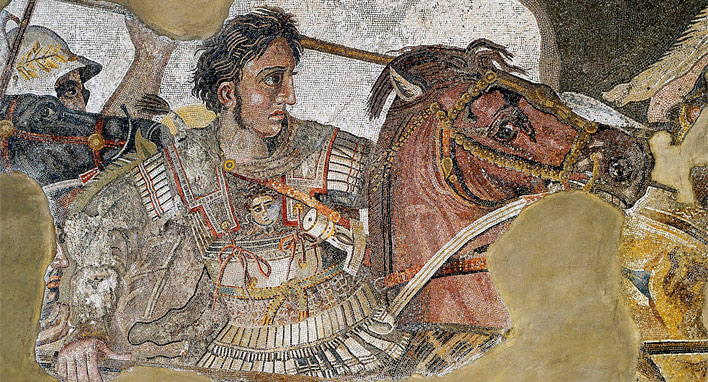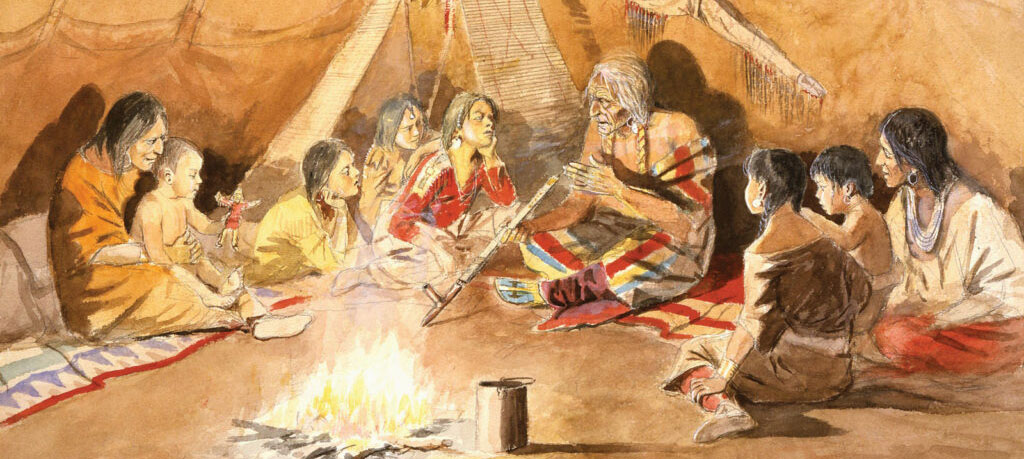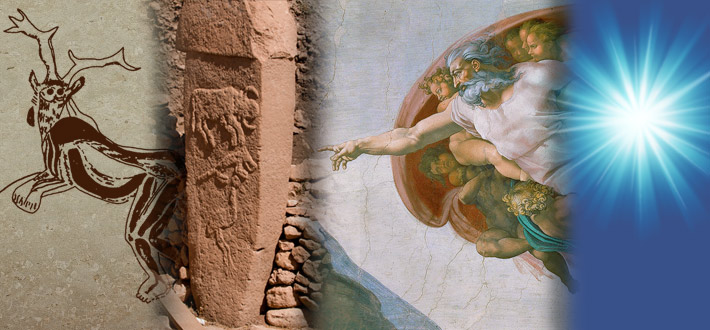
Ideas That Shaped Our Modern World
Humans are a problem-solving animal. We evolve both physically and mentally in response to challenges, which enables us to move beyond our inheritance — to consciously evolve. Throughout our history, innovations and solutions have been linked to our search for transcendence.
The desire to cultivate a sense of the transcendent began the moment we became modern man. From about 40 – 35,000 years ago, our ancestors first began to conceive of a tiered cosmos – a spirit world above and in the underworld below; and the mortal world. Deep within the caves of the mortal world they devised rituals to transcend and engage the spirit world — an idea that has been with us ever since.
The relationship between people and their god(s) was of primary importance all over the world. As populations grew, settlements became cities. Order was achieved through religious hierarchy – priests and leaders ensured that they had access to “secrets” using religion to stay powerful.
It was a pivotal time in early human history when, in four distinct parts of the world, our ancestors began to reflect for the first time on individual responsibility and the meaning of life and death. The concept of one single God—to be worshipped not through ritual but through daily life—developed around personal transformation and responsibility.
Like all the Axial prophets and teachers, his aim was spiritual revitalization—a new “kingdom” in which those who listened and followed could fulfill their potential and destiny.
The decline in traditional values was an existential threat to his tribe. Muhammad’s insight was that social reform had to be based on a new spiritual foundation.
At the end of the 7th century, centers of what would become our Western heritage and give rise to the European Renaissance, were cities in the Islamic world where the culture favored learning and tolerance.
Stories work with people, for people, and always stories work on people, affecting what people are able to see as real, as possible, and as worth doing or best avoided. What is it about stories—what are their particularities—that enables them to work as they do?
Follow the journey: The Evolution of Storytelling, A Unique Form of Literature, The Teaching Story »
Travel the Journey
“As the problems and challenges facing humankind have changed, so have their religious and ideological solutions. We live among the wreckage of once-potent solutions. If we neglect them, they may become barriers to thought and action. If we understand them, they are a treasure house for all of us to share.”
The Unseen World: The Rise of Gods and Spirits
The Institute for Cultural Research
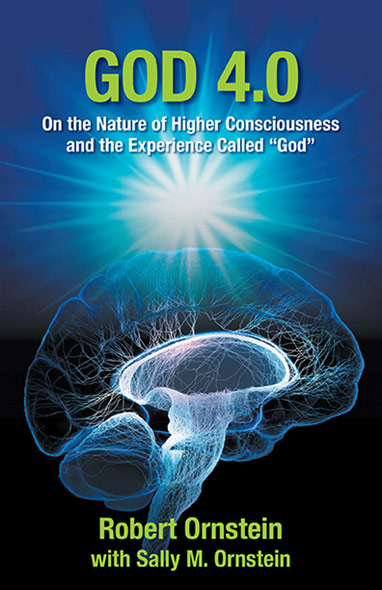
God 4.0
On the Nature of Higher Consciousness and the Experience Called “God”
By Robert Ornstein with Sally Ornstein
Review by Denise Winn
Contributing Writer
Countless research findings reveal the existence of a second network of cognition that transcends everyday consciousness. It is what people have tried to activate, from the earliest shaman-sages to Moses 3,500 years ago, to Jesus 2,000 years ago, to Muhammad 1,400 years ago, all the way up to the myriad of contemporary seekers. Read more
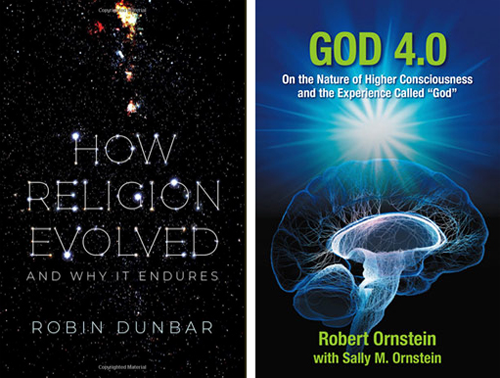
A Contemporary Look at the Nature of Religious Experience
Review by George Kasabov
Contributing Writer
People can persuade themselves of anything. Many believe that death is a transition to a transcendental world, that miracles occur through the will of God, or that our lives are ruled by immaterial spirits. How is it that, in our scientific age, when we have learned so much about the evolution of the universe and the nature of life, so many still cling to such beliefs? Why is it that faith – belief in the unprovable – is considered a virtue?
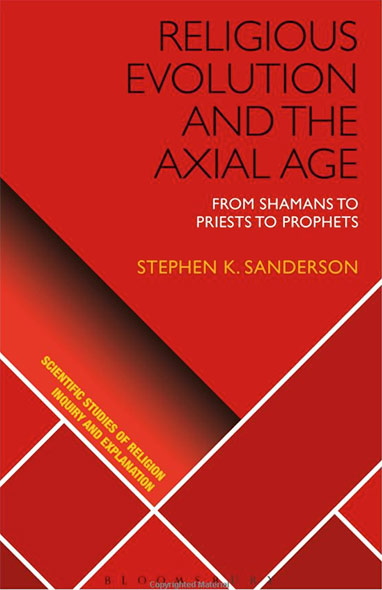
Religious Evolution and the Axial Age
From Shamans to Priests to Prophets
Hardcover edition 2018
Reported by Sally Mallam
Contributing Writer
Why are there are so many different types of religion and how and why has religion evolved over time? The answer lies in both our biological and our sociocultural evolution.

